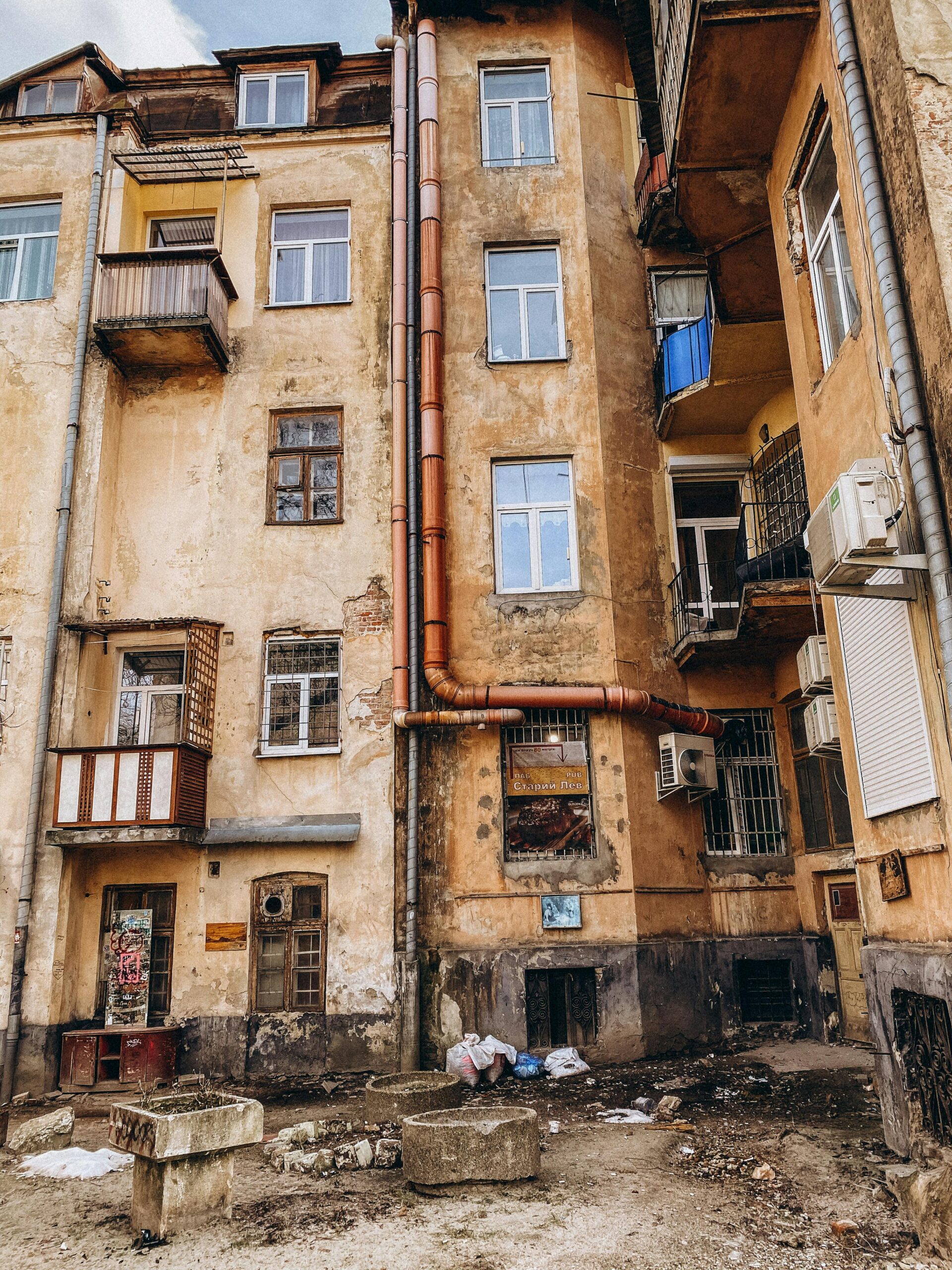When it comes to housing disrepair in London, the challenges are numerous and often overwhelming. Many tenants find themselves grappling with issues ranging from mouldy walls to leaky roofs, but what can be done? Are you aware that you have rights as a tenant? The reality is that housing disrepair is more than just an inconvenience; it can significantly affect your health and well-being, making it a pressing concern for many Londoners. With the rising cost of living, it’s crucial to understand your options when faced with these problems. Have you ever wondered how to navigate the often complex waters of housing law? This blog post aims to unravel the mysteries surrounding disrepair claims and provide you with the knowledge to take action. Are you living in a property that requires urgent repairs? If so, you’re not alone. Many residents in the capital are discovering that they can seek compensation for their suffering. This article will explore the ins and outs of reporting disrepair and what steps you can take to ensure your home is safe and habitable. Stay tuned to uncover valuable insights that could change your living situation for the better!
Understanding Your Rights: 7 Essential Legal Protections for Tenants Facing Housing Disrepair in London
Housing disrepair in London, it’s a topic that seems to be popping up more and more these days, isn’t it? I mean, what’s the deal with it? If you live in the capital, you might find yourself in a flat that’s got more issues than a tabloid newspaper. I don’t really know why this matters, but it does, especially when you’re trying to make a home outta a crumbling wall or a leaking tap.
So, let’s dive right into it. Housing disrepair isn’t just an annoying inconvenience, it can also have a massive impact on your life. Take damp and mould for example, which is something loads of tenants in London are dealing with. Apparently, living in a flat that looks like it belongs in a horror film can lead to all sorts of health problems. Seriously, not really sure why landlords don’t get this.
Here’s a little breakdown of some common issues with housing disrepair in London:
| Common Issues | Potential Impact |
|---|---|
| Damp and Mould | Respiratory issues, allergies, and general discomfort. |
| Leaky Roofs | Water damage, structural problems, and massive repair costs. |
| Broken Heating Systems | Cold living conditions, health risks in winter. |
| Cracked Walls | Structural integrity concerns, it’s not just cosmetic. |
| Pests | Health risks and major stress, who wants cockroaches? |
Maybe it’s just me, but I feel like landlords are often dragging their feet when it comes to fixing these kinds of problems. I mean, how hard can it be to fix a leaky roof? It’s not rocket science, right? But unfortunately, many tenants end up waiting ages for repairs that should be done ASAP.
Now, if you happen to be one of those poor souls dealing with housing disrepair in London, you might be wondering what your rights are. Well, you’ve got a few options. You can report the issues to your landlord, of course, but good luck with that. If they don’t respond, you might wanna look into contacting the local council or even a tenants’ rights organisation. They can help you understand your rights and what you can do about the situation.
Here’s a sorta handy list of steps to take if you find yourself in a housing disrepair mess:
- Document Everything: Take photos of the disrepair. It’s like evidence for a crime, only it’s your home, and the landlord is the criminal.
- Report to Landlord: Put it in writing, keep a copy for yourself. You don’t want them saying they never got your message, do ya?
- Contact Local Council: If the landlord ignores you, involve the council. They can inspect the property and enforce repairs.
- Seek Legal Advice: If all else fails, you might need to talk to a solicitor specialising in housing disrepair.
And here’s the kicker: if your landlord fails to address serious issues, you might have grounds to claim compensation. But, of course, it’s all very complicated. Maybe I’m just a bit cynical, but it feels like it’s always the tenants who have to jump through hoops to get what they’re entitled to.
Speaking of entitlements, let’s not forget about the importance of safety in housing. You’d think that landlords would want to keep their properties safe, right? But nope, not always. Issues like faulty electrical systems or gas leaks can be downright dangerous. It’s a miracle more people aren’t living in fear of their own homes.
Here’s a quick table to show some safety issues you might encounter:
| Safety Issues | Potential Risks |
|---|---|
| Faulty Electrical Wiring | Fire hazards, electric shocks, and all round chaos. |
| Gas Leaks | Carbon monoxide poisoning, and it can be lethal. |
| Poor Security | Increased risk of burglary and personal safety concerns. |
Honestly, it’s a bit of a minefield out there. If you’re renting in London, you might wanna wear a hard hat and carry a fire extinguisher. You never know what you might be dealing with.
And here’s another thing to ponder: local councils in London are meant to enforce housing standards. But, let’s face it, they’re often stretched thin. So, when you report an issue, it might take ages before anyone actually comes to check it out. It’s like they say, “patience is a virtue,” but how much waiting can one person do before they lose their mind?
In summary, housing disrepair in London is a serious issue that affects many tenants, and unfortunately, it doesn’t seem to be getting better anytime soon. Whether it’s damp,
The Cost of Neglect: How Housing Disrepair Affects Your Health and Well-being in London
Housing disrepair in London, what a topic, right? It’s like, you think you’ve seen it all, and then you step into a flat that’s falling apart, and you’re like, “Nope, I ain’t ready for this.” So, let’s dive into the nitty-gritty of housing disrepair London, shall we?
First off, disrepair can mean many things. Leaky roofs, damp walls, faulty electrics—basically, if it’s not working like it should, you might have yourself a case of disrepair. Not really sure why this matters, but hey, if you’re living in a place that’s got more issues than a soap opera, you gotta do something about it.
Here’s a fun fact: in London, the rates of housing disrepair are actually higher than you’d think. I mean, you’d expect a city like this, where everything is supposedly posh and fancy, to be all sorted out, right? But nah, it’s like a game of Russian roulette with your living conditions.
Now, let’s break down some common issues in housing disrepair London.
| Issue | Description | Potential Risks |
|---|---|---|
| Damp and Mould | Excess moisture leading to mould growth | Health problems, structural damage |
| Cracked Walls | Structural integrity issues | Risk of collapse, safety hazards |
| Faulty Electrics | Outdated or damaged wiring | Fire hazards, electrical shocks |
| Broken Windows | Security and insulation issues | Increased energy bills, safety risks |
| Plumbing Problems | Leaks or drainage issues | Water damage, increased bills |
So, you see, it’s not just about a leaky tap or a dodgy boiler—it’s a whole can of worms. Maybe it’s just me, but I feel like if you’re paying a fortune for rent in London, you shouldn’t have to deal with a plumbing disaster every other week.
Let’s talk about the landlords. Ahh, the landlords. Some of them could give a rat’s backside about the state of their properties. There’s this unspoken assumption that tenants will just put up with whatever because, well, what are you gonna do? Move somewhere else? Good luck finding a place that doesn’t have its own set of issues.
Here’s a little list of rights tenants have under the law in London regarding housing disrepair London. You might wanna take notes, folks:
- Right to live in a safe and secure property.
- Right to have repairs done in a reasonable time frame.
- Right to get compensation if the disrepair affects your health or safety.
- Right to report disrepair without fear of retaliation.
And yet, many tenants remain oblivious to their rights. I mean, it’s like being handed a winning lottery ticket and promptly losing it in the couch cushions. It’s baffling.
Now, if you find yourself in a housing disrepair situation, what should you do? Here’s a step-by-step guide, cause why not:
- Document Everything: Take photos, keep records of communication with the landlord. You’d be surprised how much this can help later on.
- Notify Your Landlord: Give them a chance to sort it out. Keep it formal—send a letter or an email.
- Contact Local Authorities: If the landlord doesn’t respond, you can reach out to your local council. They might be able to intervene.
- Seek Legal Advice: In some cases, a bit of legal jargon can work wonders. There’s a bunch of organisations that help tenants with these issues, like Shelter or Citizens Advice.
And then there’s the possibility of getting compensation for all this hassle. It’s not going to make up for the damp smell in your flat, but hey, it’s something. You could potentially sue for the inconvenience caused by your landlord’s negligence. But let’s be real, do you really wanna go down that road? It’s like opening a can of worms that’s been sitting in your garage for years.
Lastly, let’s touch on the emotional toll of living in a state of disrepair. It’s draining, isn’t it? You come home after a long day, and instead of a sanctuary, you find a list of repairs longer than your arm. It can really mess with your mental health, not to mention your social life. “Oh, sorry, can’t come out, my ceiling is literally falling down.”
In London, it’s all about being proactive and standing up for your rights. Don’t let your landlord take you for a ride, cause at the end of the day, your living space should feel like home, not a horror film set.
Step-by-Step Guide: How to Report Housing Disrepair in London and Ensure Your Voice is Heard
Housing Disrepair in London: What You Need to Know
So, let’s dive right into the world of housing disrepair London, shall we? It’s not the most cheerful topic, but hey, someone’s gotta talk about it. You see, many folks in the capital are living in some pretty dire conditions, and it’s about time we shine a light on this issue. Like, not really sure why this matters, but it does, trust me on that one.
First off, what exactly is housing disrepair? Well, it’s when a home is in a state of disrepair. Obvious, right? But seriously, this can mean anything from leaky roofs to damp walls, or even dodgy electrics that could give you a shock — literally! And it’s not just an inconvenience; it can impact health and safety. I mean, who wants to live in a place that feels more like a horror movie set than a cosy flat?
Now, you might be wondering, “What causes these issues?” Well, there’s a multitude of reasons, but here’s a quick rundown:
- Neglect: Landlords sometimes think that fixing things is optional, which is like saying eating vegetables is optional. Not a great idea!
- Age of the Property: Older buildings, especially in London, can be a bit like that old car that keeps breaking down. You can only patch it up so many times before it just doesn’t work anymore.
- Weather: Let’s face it, the British weather is as unpredictable as a cat on a hot tin roof. If it’s not raining, it’s probably windy, and that can do a number on your property.
Speaking of properties, let’s take a look at some common issues you might encounter if you’re living in a disrepair situation:
| Issue | Description | Potential Risks |
|---|---|---|
| Damp and Mould | This is when moisture builds up, leading to mould growth, which is bad for your health. | Respiratory problems, allergies |
| Leaking Roofs | Water seeping in from above can cause extensive damage. | Structural damage, pest infestation |
| Cracked Walls | These might seem harmless, but they can indicate serious structural issues. | Safety hazards, expensive repairs |
| Faulty Electrics | Old wiring can be a fire risk. | Fire hazards, electrocution risk |
| Infestations | Pests love neglected homes, and they can be a real nuisance. | Health risks, damage to property |
Now, if you’re thinking “Oh my God, that sounds awful!” you’re not alone. Many tenants in London find themselves stuck in these situations, often feeling powerless. It’s like being in a bad relationship where you can’t just pack up and leave. You might feel like you’re banging your head against a brick wall trying to get your landlord to listen. Maybe it’s just me, but I feel like there should be some sort of superhero for this kind of stuff.
So, what are your rights when you find yourself in a housing disrepair London scenario? Well, under the Housing Act, landlords are legally required to keep their properties in a good state of repair. It’s like they’re supposed to be the grown-ups here, but sometimes they just don’t act like it. If your landlord is dodging repairs, you’ve got a couple of options:
- Report the issue: You can contact your local council if your landlord isn’t playing ball. They can help enforce standards.
- Seek legal advice: There are organisations like Shelter that can guide you through the process. It’s like having a cheat sheet for adulting.
- Document everything: Take photos, keep a record of communications with your landlord. It’s like creating a little diary of your woes.
Now, here’s a little insight into what to do if you’re facing disrepair issues.
- Keep calm: I know it’s easier said than done, but stress won’t fix the roof, will it?
- Reach out: Don’t just suffer in silence. Talk to your neighbours; they might be in the same boat. Together, you can raise your voices.
- Educate yourself: Knowing your rights can be empowering. There’s loads of info out there if you’re willing to dig.
And while we’re at it, it’s worth mentioning that if you’re in a council property, they have a duty to maintain it. So, if your home is falling apart around you, it’s time to hold them accountable.
In summary, housing disrepair London is more common than you might think, and it’s essential to know your rights and options. Don’t let your landlord off the hook
Hidden Dangers: 5 Common Types of Housing Disrepair in London and Their Impact on Tenants
Housing disrepair in London is, well, a right mess. You know, it’s one of those things that just doesn’t seem to go away, no matter how much they try. I mean, not really sure why this matters, but for many people living in the capital, they’ve got real problems to contend with. The whole situation is a bit of a nightmare, really.
So, if you’re renting in London, there’s a fair chance you’ve heard about housing disrepair London. It’s like this lurking shadow that follows tenants around. From leaky roofs to crumbling walls, the list goes on. And let’s not forget about mould, which is pretty much a flatmate in some places. You might think, “ah, it’s just a bit of damp,” but trust me, it’s more than just an eyesore. It can cause health issues, especially if you’ve got asthma or allergies.
Let’s break it down a bit, shall we? Here’s a quick table of common issues related to housing disrepair London and their potential impacts:
| Common Issues | Potential Impacts |
|---|---|
| Leaky Roofs | Water damage, structural issues, mould growth |
| Cracked Walls | Reduced heat efficiency, pest problems |
| Broken Heating Systems | Cold homes, health risks during winter |
| Mould | Respiratory problems, allergic reactions |
| Faulty Electricals | Fire hazards, unsafe living conditions |
So, basically, if you’re living in a dodgy place, you might be living in a health hazard. And you might be thinking, “well, what do I do about it?” Good question! If you notice something wrong, you gotta report it to your landlord. But let me tell you, that’s easier said than done.
You know, it’s kinda like playing a game of cat and mouse. You report the issue, and then you wait… and wait. Sometimes, it feels like your landlord is on a permanent holiday or something. I mean, they might act all surprised when you tell ‘em about the state of the flat. “What’s this? Mould? Never noticed!” Really? Maybe it’s just me, but if I had mould growing in my kitchen, I reckon I’d notice.
Here’s a few tips on what to do if you find yourself stuck in this situation:
Document Everything: Take photos, write down dates, and keep records of all communications with your landlord. It’s important, trust me. You don’t wanna be caught out without proof, right?
Know Your Rights: In London, tenants have rights. If your landlord isn’t doing what they’re supposed to do, you might be able to take further action. There’s something called the Housing Health and Safety Rating System (HHSRS) which is like a safety net for tenants.
Contact Local Authorities: If your landlord is being particularly unhelpful, you can reach out to your local council. They might send someone to take a gander at your living conditions. It’s not exactly a fun experience, but sometimes it’s necessary.
Consider Legal Advice: If the disrepair is severe and your landlord is still ignoring you, maybe it’s time to speak to a solicitor. I know, it sounds a bit over the top, but sometimes you gotta play hardball.
Now, you might be wondering, “What are the common types of disrepair?” Well, here’s a quick rundown:
Structural Issues: Cracks in the walls, sagging ceilings, or anything that makes you feel like the house might just fall down around you.
Plumbing Problems: Leaks, broken pipes, or a shower that’s more of a drizzle. You wouldn’t want to live like that, would you?
Heating and Electrical Issues: No heating in winter? That’s a no-go. And faulty electrics can lead to serious problems, including fires.
Pest Infestations: Rodents or insects? Absolutely not. It’s like living in a horror film.
If you’re in a housing disrepair London situation, you might be feeling a bit overwhelmed, and that’s totally normal. It’s a hassle, and it can feel like you’re fighting an uphill battle. But hang in there! You’ve got rights, and there are folks out there who can help you.
Let’s not forget the importance of community. Sometimes, just chatting with your neighbours can help. You might find out they’ve had similar issues, or they might have some tips on how to deal with your landlord. And who knows, maybe they’ve got a good story or two about their own experiences.
In the end, housing disrepair in London is
Navigating the System: 10 Proven Tips for Tenants to Claim Compensation for Housing Disrepair in London
Housing Disrepair in London: A Growing Concern
So, let’s talk about housing disrepair London. You know, it’s like that nagging toothache you can’t ignore, but everyone seems to be doing just that. Maybe it’s just me, but I feel that the state of housing in the capital is something that needs more attention. I mean, who wants to live in a place that’s falling apart, right?
First off, what even is housing disrepair? Well, it can mean anything from leaking roofs, mouldy walls, to dodgy plumbing. It’s not just a minor inconvenience, oh no! These issues can actually affect your health. Not really sure why this matters, but a damp flat can lead to all sorts of problems, like asthma or other respiratory issues. And let’s be honest, who needs that on top of everything else?
Types of Disrepair
There’s quite a variety of disrepair issues that tenants might face in London. Here’s a little list for ya:
- Damp and Mould: Can’t get rid of that musty smell? Yeah, that’s probably mould.
- Structural Issues: Cracks in the walls or ceilings that look like something outta a horror film.
- Heating Problems: If your flat is colder than the North Pole in winter, you’re in trouble.
- Electrical Issues: Flickering lights or sockets that don’t work? That’s a fire hazard waiting to happen.
Now, back to the mould thing. Did you know that it can grow rapidly? One day you’ve got a little spot, next thing you know it’s a full-on infestation. And the landlords? They might just shrug and say, “Not my problem.”
Who’s Responsible?
You might be wondering, “Well, who’s responsible for all this?” It’s a bit of a grey area, really. Landlords are supposed to keep their properties in good condition, but some of them, let’s be honest, don’t really give a toss. How many times have you tried to report issues only to be met with silence?
Here’s a breakdown of what landlords should be doing:
- Responding to repair requests within a reasonable time frame.
- Ensuring the property is safe and livable.
- Keeping up with regular maintenance checks.
But, if they don’t, tenants can often feel stuck. Not really sure what to do next? You can actually take it to the local council or even get legal advice. But, oh boy, does that sound like a hassle.
Evidence of Disrepair
You might be thinking, “How do I prove my landlord is slacking?” Well, keeping a record is essential. Photos, dates, and any correspondence with your landlord can be super helpful. I mean, having a little evidence goes a long way, right? Here’s a quick table to show what kinda evidence you might need:
| Evidence Type | Description |
|---|---|
| Photos | Snapshots of the issues. |
| Emails/Texts | Communication with landlord. |
| Repair Requests | Copies of requests made. |
| Witness Statements | Anyone else who can back you up. |
Now, if you’re still unsure about your rights, websites like Shelter can be a good starting point. They provide loads of info on tenants’ rights and what you can do if your landlord is being a pain.
Legal Options
Sometimes, it gets to a point where you gotta consider legal action. It sounds scary, but it doesn’t have to be. You can contact a legal aid service if you’re on a low income. They can help you understand whether you have a case or not.
But, here’s the kicker: even if you’ve got a strong case, it could take ages to sort out. And in the meantime? You’re still living in a dodgy place! It’s like being stuck in a never-ending cycle of frustration.
Practical Insights for Tenants
So, if you’re dealing with housing disrepair London, here’s a few practical tips to keep in mind:
- Document Everything: Don’t just complain, keep a record of everything.
- Know Your Rights: Familiarise yourself with tenant rights; it’s easier to stand up for yourself if you know what you’re entitled to.
- Don’t Delay: Report issues ASAP. The longer you leave it, the worse it can get.
- Stay Persistent: If your landlord’s dragging their feet, keep pushing. Sometimes, it’s the squeaky wheel that gets the grease!
Navigating through housing disrepair London can be a bit of a minefield. But, with the right information and a bit of tenacity, you can tackle it head-on. Just remember, you’re
Conclusion
In conclusion, housing disrepair in London remains a pressing issue affecting countless residents, from damp and mould to structural failures and inadequate heating. Throughout this article, we explored the legal rights of tenants, the responsibilities of landlords, and the importance of reporting disrepair promptly to ensure safe living conditions. It is crucial for tenants to understand their rights under the Housing Act, as well as the available channels for seeking redress, such as local councils and housing associations. As we strive for improved housing standards, it is essential to advocate for change and hold landlords accountable for their obligations. If you or someone you know is facing housing disrepair, do not hesitate to seek support from organisations dedicated to tenant rights. Together, we can work towards a future where every Londoner has access to safe, secure, and well-maintained housing. Let’s make our voices heard and demand the living conditions we all deserve.













